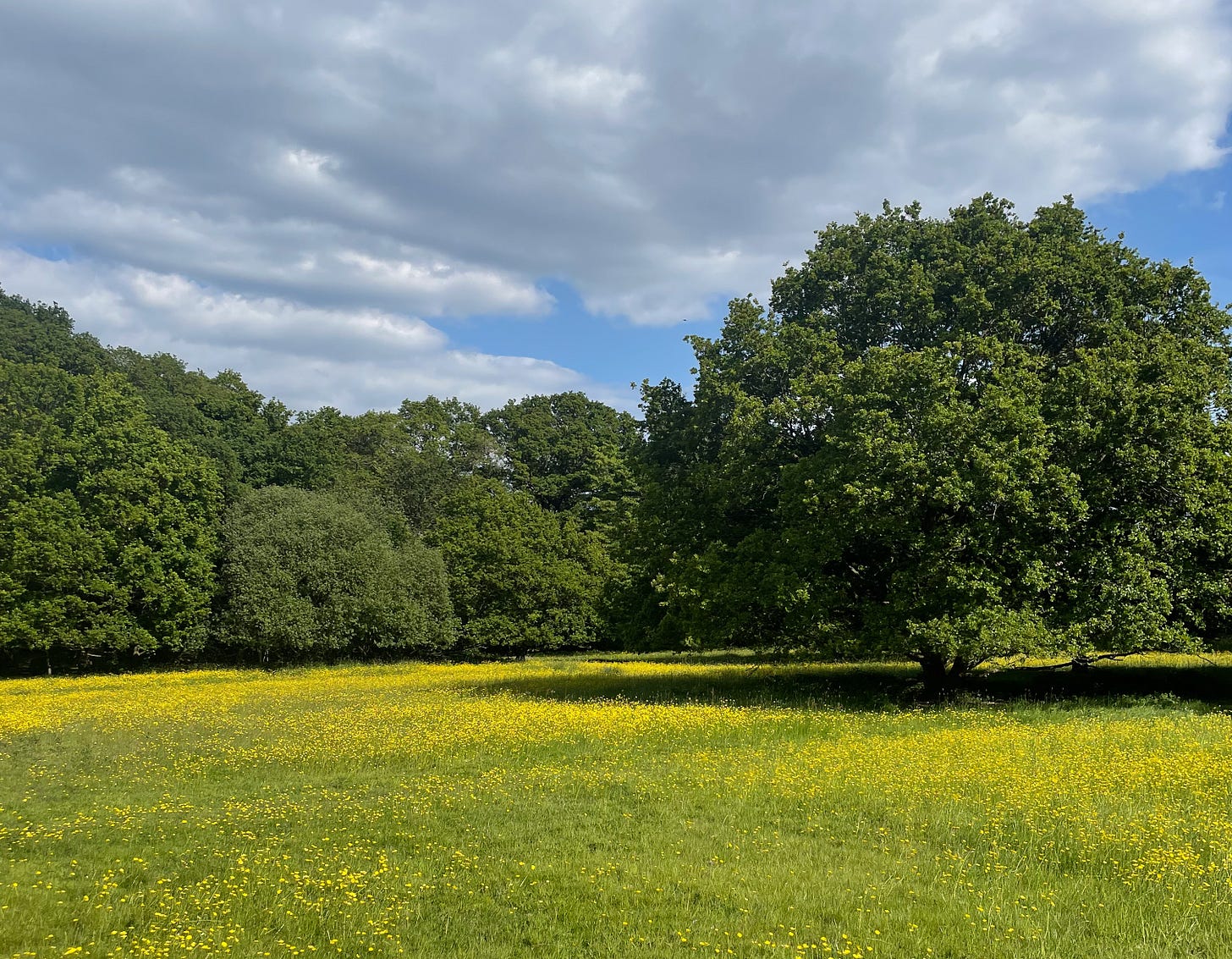30 ways to go wild this June
...or any other month.
We’re a week into June, which means we’re a week into the Wildlife Trusts’ annual campaign, 30 Days Wild. Why are we talking about this on the 8th rather than the 1st June, I hear you ask? Because I didn’t plan the schedule correctly, that’s why!
But does it really matter? You should be able to go wild whatever the day of the month or the time of year. Don’t confine yourself to arbitrary calendars. Go wild whenever you feel like it.
That said, it’s been uplifting to see all of the blogs and photos and articles written by people indulging in this wonderful annual tradition. And it’s not too late to join them.
You don’t have to go hiking through the Amazon to go wild this summer. Personally I’ve just been enjoying wandering up the canal, noticing the plants and watching the bees on the comfrey. That’s what urban nature is all about - not great sweeping swathes of forest or epic vistas untouched by human hands, but the nuances between the grey, the mundane that goes unnoticed. The shoots poking through cracks in a concrete path. A coot collecting reeds for its nest. A butterfly basking on a brick wall.
Nature surrounding us, a complex tapestry of many thousands of threads, each with its own place and shape and scent.
But if you’re still looking for inspiration, here are 30 wild things you can do this June. Do one of them, do all of them, just do something to remind yourself that you are not disconnected from the world. We depend on other species as much as they depend on us.
Bird watch for an hour out of your window. Keep track of the species you see.
Make a bird feeder. Fill a container with birdseed and string it up somewhere. Easy.
Clean existing bird feeders. Got one already? Wash it out with soap and warm water. It helps prevent the spread of parasites and disease.
Go for a walk and leave your phone at home. Notice the wildlife. What plants can you identify? While you’re at it…
Identify a plant. How many types of trees do you know? Take a moment to learn some. Oak is my favourite.
Identify birdsong. How many birds do you know from their song alone? Learn a few birdsongs and you’ll notice so much more when you’re outside. I particularly love the sounds of the blackbird and the robin.
Count butterflies. Practice for the Big Butterfly Count in July, a great bit of citizen science that’s easy to do.
Support a wildlife charity. The Wildlife Trusts do wonderful things with their reserves, and this is their campaign. I have personal affinities with Buglife, WWF, and Cheetah Conservation Fund too. It doesn’t have to be financial, either - spread the word about your favourite charity or volunteer some time to help.
Pick up some litter. Leave a place better than you found it.
Practice yoga outside. Breathe the air. Take a break from your screen.
Practice grounding. Stand outside on grass with bare feet. Notice what it feels like.
Watch the sunset or the sunrise. Or both.
Eat a meal outside. Bonus points if it’s vegetarian or vegan.
Spend some time on the water. Even in city canals, taking to a paddle board or kayak is a good way to experience things from a duck’s eye view.
Watch a nature documentary.
Read a nature book. The Wainwright Nature Prize for UK Nature Writing is a great place to find new favourites.
Build a hedgehog home. They’re one of the UK’s most struggling mammals, and they need a helping hand.
Ditch the car. Walk, bike, or take public transport somewhere instead. Fewer fumes, fewer emissions, happier people and planet.
Plant a tree.
Plant some bee-friendly flowers in your garden.
Plant some bee-friendly flowers anywhere. Let’s call this guerilla gardening. Don’t apologise.
Build a water bath for birds and insects. Especially if it’s warm.
Go camping. Hotels suck, stay outside.
Draw or paint a wildlife-inspired picture. Even if you’re bad at it, like me.
Let your grass grow. No Mow May is over, but Let It Bloom June is in full swing.
Look for bats. They come out at dusk, and love swooping silently for insects around houses.
Ditch your chemicals. Toxic household products end up in our waterways, inflicting terrible damage. Opt for natural solutions instead.
Grow a container herb garden. You don’t need a lot of space - a windowsill will do. Growing your own herbs will help you ditch supermarket plastic.
Visit the seaside. UK cities aren’t ever too far from the sea. Spend some time at the beach and swim in the sea (but check for sewage dumps first).
Share Urban Nature Diary with your friends!
Because the last one was a cop-out, this one’s for free: build a log pile for beetles.
And remember - you can keep coming back to these any time. See you in the next one.



